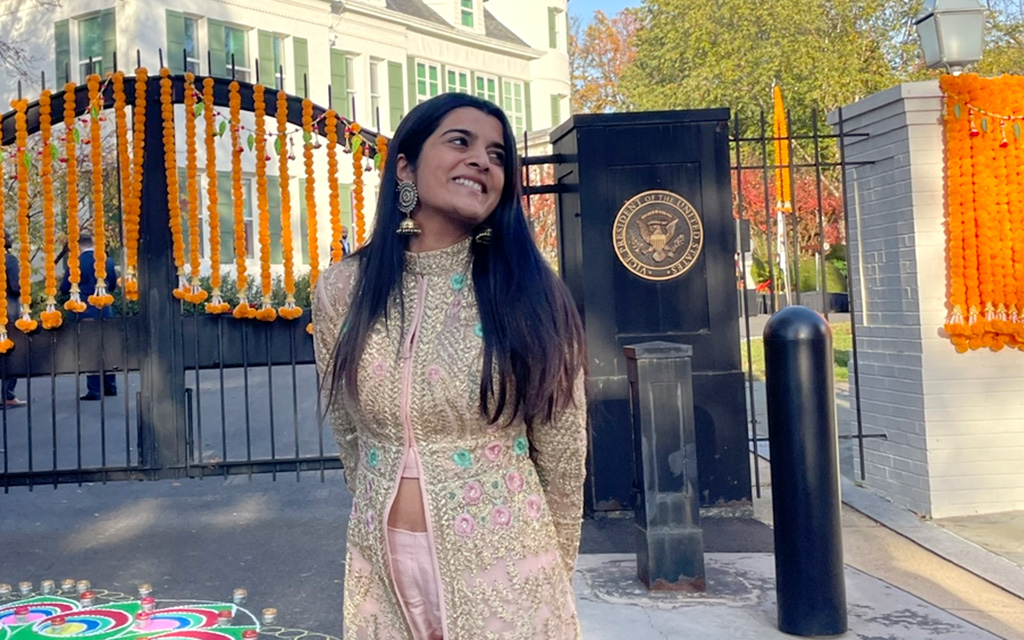When a young Shivangi Nakoom wanted to learn fluent English, she found help in an unusual place—with Dora, Boots and the gang from Nickelodeon’s “Dora the Explorer,” who she says not only helped her learn English but also perfect her American accent.
Though born in Port Gibson, Nakoom spent her first five years in India where she spoke Gujarati and Hindi. When she and her family returned to Mississippi, she said the language barrier made it difficult for her to fit in.
“My mom does not speak English. My dad does, but not with an American accent, so I took it upon myself to learn,” Nakoom explained. “I actually watched ‘Dora the Explorer,’ to learn English and the American accent, too.”
Nakoom said the transition from her life in India into life in America was difficult. And while she took the initiative to try to overcome many of the obstacles she faced, like the language barrier, one thing she couldn’t change was the lack of South Asian representation in American culture.
“Of course, I had female figures like my mom and grandma that I could learn resilience from, but there weren’t people who looked like me in positions of power to look up to,” Nakoom recalled. “I was interested in law and politics, but there weren’t many women of color, especially South Asian women, in those positions in the Deep South.
“I really struggled because I wanted to have people to look up to that looked like me, so I could say, ‘if they can do it, I can, too,’” she continued. “A lot of my struggles came from not having that kind of role model like the people around me did.”
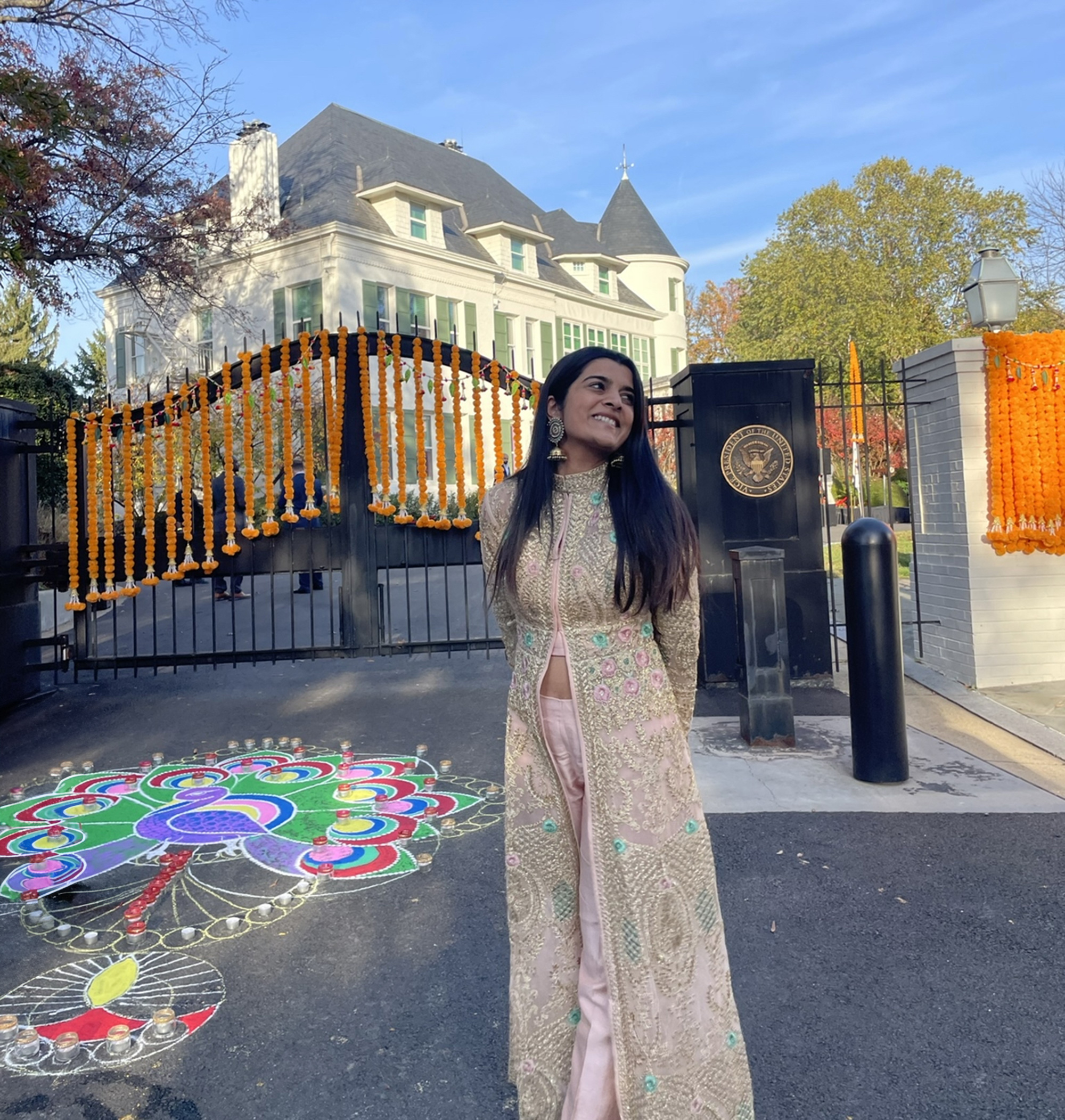
Without someone to model her path after, Nakoom became her own role model. Now, at 23, she holds two bachelor’s degrees from Mississippi State University and has completed a White House internship in the Office of the Vice President under Kamala Harris.
Nakoom said she owes the auspicious start to her professional career to Mississippi State.
“I’ve had wonderful supporters and friends at Mississippi State who have encouraged me, so I owe a lot of my success to MSU,” the 2023 political science and business administration double graduate said. “Today, I am who I am because of my university.”
Nakoom said choosing MSU became easier after attending the Donald Zacharias Leadership Conference, an event organized by Freshman Reach for high school juniors and seniors.
Nakoom said everybody she interacted with during the conference was kind and ready to assist her which made her feel a sense of belonging.
“It didn’t feel like I was walking on this campus that was far away from home,” she said. “I felt a connection and it was real.”
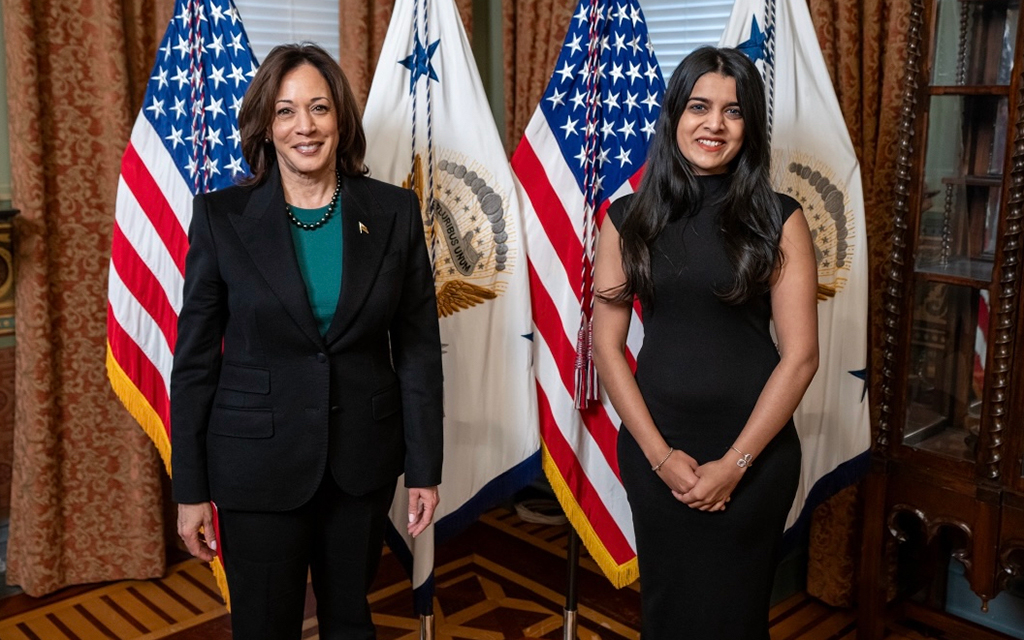
After finding her place at MSU, Nakoom knew she needed to put in extra effort to achieve academic excellence. Her determination left an indelible impression on her professors.
Whit Waide, an assistant clinical professor at the Department of Political Science and Public Administration, said Nakoom’s dedication to her academics, as well as her knowledge of not only where she wants to go in life, but how to manage any obstacles along the way, makes her standout among her peers.
“Everything she handed in was top notch, and it wasn’t because I was giving her better instruction. It was because she is remarkably driven and can just figure stuff out,” Waide said. “She is a stellar human being.”
Nakoom’s ability to overcome hurdles and make her dreams a reality, helped her secure an internship at the White House. She said it is one of her proudest accomplishments because it gave her insight into American life and allowed her to become part of the South Asian representation she longed to see growing up.
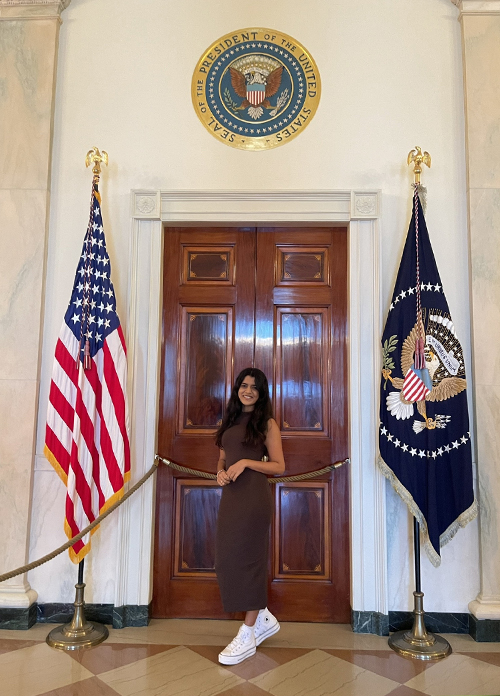
“Representation matters a lot and knowing that I was not only able to represent the South Asian community and women but also represent Mississippi at the White House was a proud moment for me,” she said.
Nakoom’s outstanding performance at the White House continues to be remembered for its lasting impact on her team. Randi Shores, Nakoom’s supervisor, said she was a valuable addition to the team and she is remembered for her diligence and inventiveness.
“Shivangi’s enthusiasm and eagerness to learn injected fresh energy into our projects, and sparked new ideas and perspectives,” she said. “She displayed impressive initiative and a willingness to tackle challenges head-on.”
Determined to remove any hindrance to her success, Nakoom now is living the dream she envisioned. She currently works as a legal assistant at Proskauer Rose LLP in New York City and plans to start law school next fall.
“I want it to be known that no matter who you are or where you are from, you have the ability to succeed and achieve your dreams,” she said. “Your failures don’t define you, but your resilience in the face of any obstacles is what truly matters.”
By Portia Agyapong, Photos submitted
Talk to Me: MSU English Language Institute builds confidence for English learners
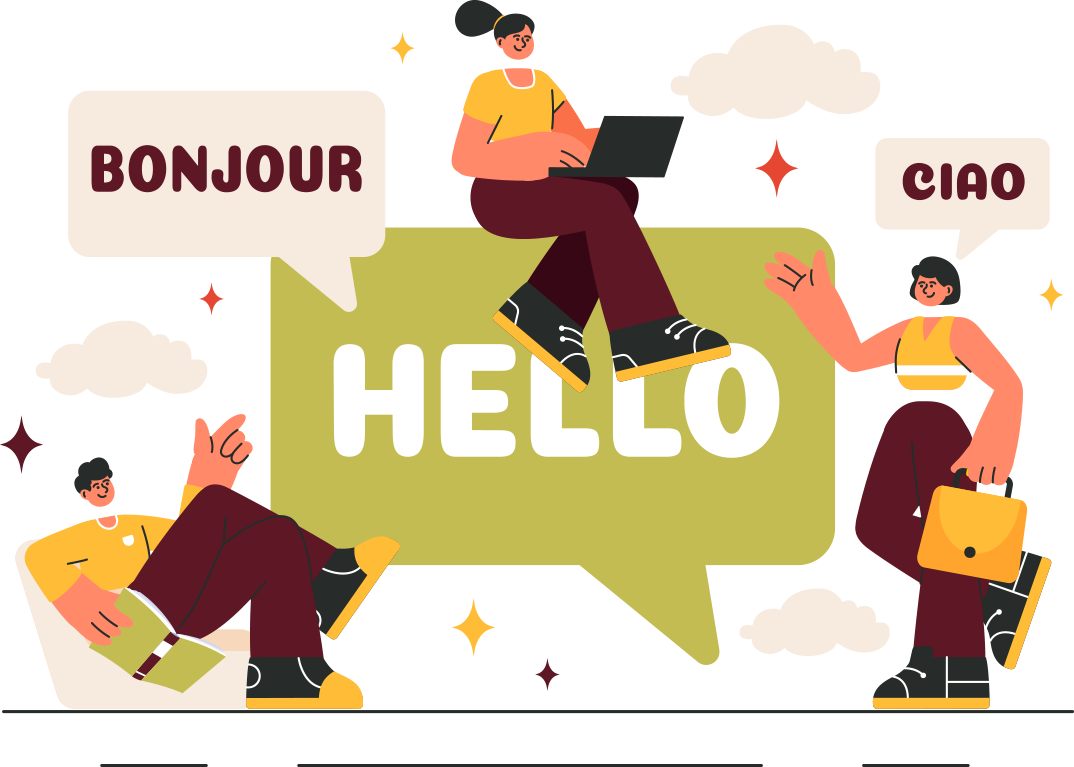
As a world-renowned research university, Mississippi State University attracts students and faculty from across the globe. Already accomplished in their fields of study, often these individuals must also master English as a second language to succeed in the American academic world.
Beyond being able to read and write in English, those who relocate to Mississippi and take classes must be able to process the spoken language quickly, speak fluently, understand Southern accents and parse out the meanings of the various slang, idioms and shorthand used in daily life.
Through the English Language Institute, Mississippi State is helping these international students and faculty, as well as their families and the community at large to overcome these communication barriers.
“We are here to help those who don’t speak English as their first language to learn the language,” explained Amy Harrison, director of the institute. “We have classes in reading, writing, listening and speaking at different levels and evaluate our students to place them in the classes they need.”
The institute offers classes that give college credit for those enrolled at MSU but there are also non-credit classes that bring in people from Starkville and the surrounding area, as well as the spouses and dependents of MSU students, faculty and staff.
In addition to classes, ELI organizes activities that encourage interaction between developing English speakers and those who have always spoken the language. Among the most popular is the Conversation Partner program, which pairs MSU volunteers with English students for weekly interactions to allow for language practice, promote connections within the broader community and encourage better understanding of different cultures.
Harrison said the Conversation Partner program often benefits the volunteer as much as those practicing English.
“For many of our student volunteers, this is the first opportunity they have to interact on a personal level with someone from a different culture,” Harrison explained. “For those planning to study abroad, it can give them a better idea of the challenges they may face. Our language students looking for someone to practice the language they are learning with can benefit as well.”
Harrison explained that the empathy that comes from aiding a language learner can make one a better communicator in all aspects of their life—especially as we become more globally-minded and likely to encounter those who speak other languages.
Harrison offers the following tips for communicating with budding English speakers or those for whom English is not their first language.
- Speak clearly and slowly—but not overly loud. Most often language barriers come from muddled pronunciation or rapid speech, rather than a lack of volume.
- Avoid uncommon or overly complicated words or phrases. In particular, slang, idioms and regional quirks of language can be confusing to someone learning a language.
- Ask for clarification. Don’t pretend to understand something if you don’t.
- Be patient. Learning a new language can be a daunting task. Remember that what they’re doing is hard and extend courtesy and grace as they try to communicate.


